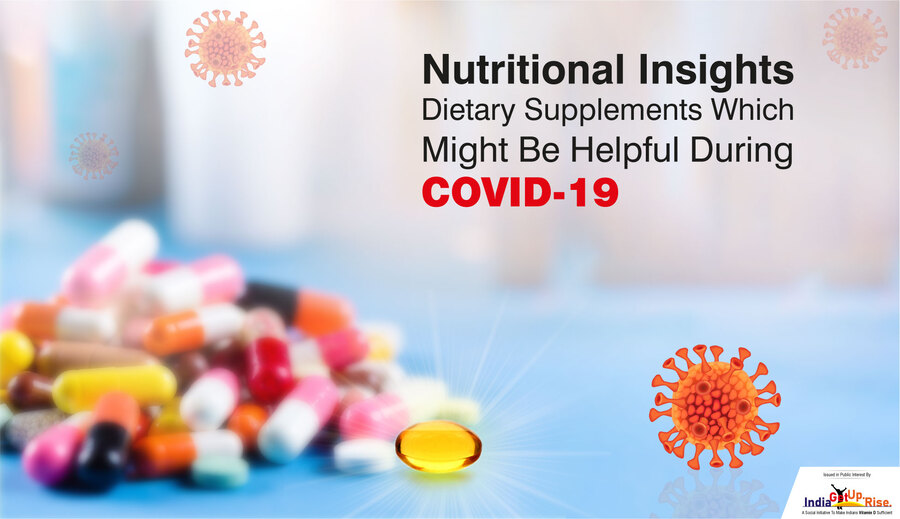- The use of dietary supplements has been advocated by various medical boards, medical personnel since the beginning of COVID 19 pandemic (Adams, 2020). A biologically plausible role exists for certain vitamins and minerals in immune pathways. For example, vitamin D has been suggested to reduce SARS-CoV- 2 transmission by enhancing antiviral immunity and to reduce mortality by mitigating the cytokine storm linked with severe COVID-19 (Grant WB, 2020). The antiviral role of zinc and many other nutrients has also been evaluated extensively (Read SA, 2019).
- To test the same hypothesis, a real time tracking of people with COVID 19 for self-reported symptoms was followed up. By using data from the COVID-19 Symptom Study app (Menni, 2020) from 445 850 subscribers from three countries UK, USA and Sweden, an attempt was made to evaluate that individuals taking dietary supplements, were at lower risk of testing positive for SARS-CoV-2, during the first wave of the pandemic.
- In the UK participants, those taking probiotics, omega-3 fatty acids, multivitamins or vitamin D had a lower risk of SARS-CoV- 2 infection by 14%, 12%, 13% and 9%, respectively, after adjusting for potential confounders. On stratification by sex, age and body mass index (BMI), the protective associations in individuals taking probiotics, omega-3 fatty acids, multivitamins and vitamin D were observed in females across all ages and BMI groups, but were not seen in men. The same overall pattern of association was observed in both the US and Swedish cohorts. After the statistical analysis, in women, a modest but significant association between use of probiotics, omega-3 fatty acid, multivitamin or vitamin D supplements and lower risk of testing positive for SARS-CoV-2 was observed.
- Vitamin D influences the function of antigen-presenting cells, T cells and B cells. It also promotes production of cathelicidin and defensins, microbicidal components of the innate immune system. The overlap between risk factors for vitamin D deficiency and risk of severe COVID-19, such as obesity, age and ethnicity, gives some plausibility to a protective role of vitamin D. (Martineau AR, 2020)A meta-analysis of 39 randomized controlled trials reported that vitamin D reduces the risk of respiratory infections by around 11%, but there was considerable heterogeneity.
Know your VITAMIN D Score: Take the free Vitamin D Test – Click here: Vitamin D Self Examination
- In the data obtained, Vitamin D provided a modest protective effect for infection, with a 9% reduction in risk of testing positive for SARS-CoV- 2 in the overall UK cohort, 24% in the US cohort and 19% in the Swedish group. Being an observational study, the findings still needs to be confirmed and there is a need for randomized controlled trials of selected supplements.
Please always ensure to check with your Doctor / Healthcare / GP before starting with any new medication or therapy.
For any queries, feel free to reach us on our website, facebook, twitter, instagram, LinkedIn
Take the free Vitamin D Test – Click here: Vitamin D Self Examination
References
- Adams, K. K. (2020). Annals of Pharmacotherapy. Myth Busters: Dietary Supplements and COVID-19., 54(8), 820–826.
- Grant WB, L. H. (2020). Evidence that vitamin D supplementation could reduce risk of influenza and COVID-19 infections and deaths. Nutrients, 12:988.
- Martineau AR, F. G. (2020). Vitamin D for COVID-19: a case to answer? Diabetes and endocrinology, VOLUME 8, ISSUE 9, P735-736.
- Menni, C. V. (2020). Real-time tracking of self-reported symptoms to predict potential COVID-19. Nature Medicine , 1037–1040 .
- Read SA, O. S. (2019). The role of zinc in antiviral immunity. Advances in Nutrition , 10:696–710.


